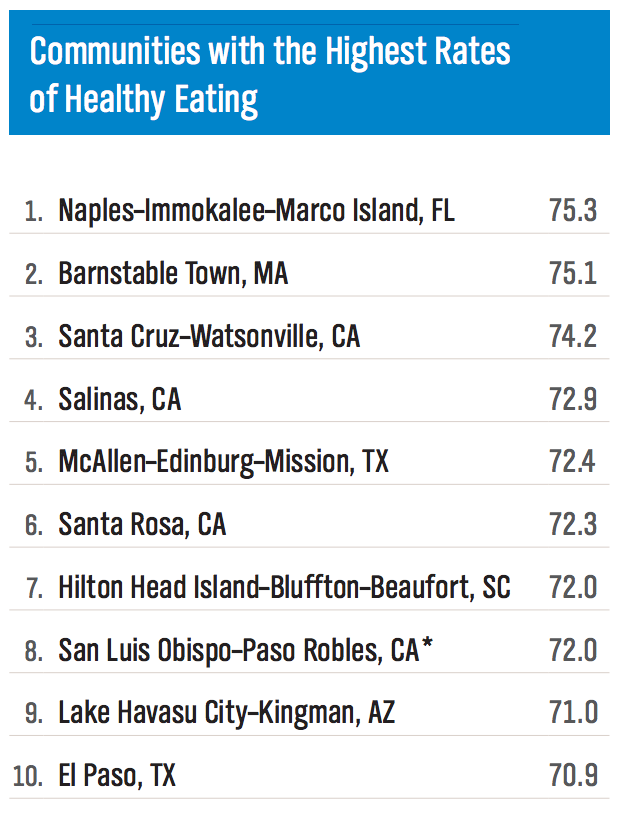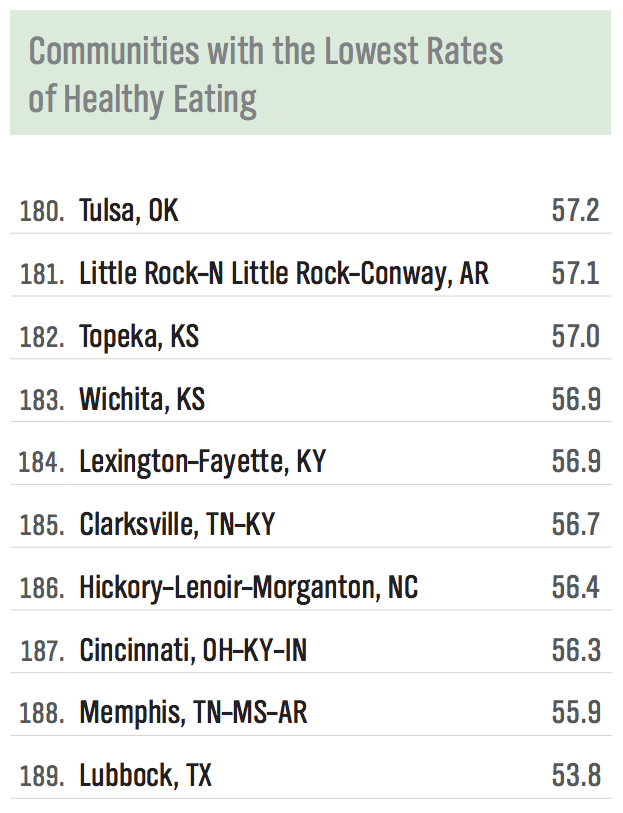Did you eat healthy all day yesterday?
That’s the question that Gallup asked more than 350,000 Americans across 189 communities to rank them by how well they eat. Naples Fla., Barnstable, Mass. and Santa Cruz, Calif. topped the list, with over 70% saying they eat a healthy diet. At the bottom of the list were Cincinnati, Ohio, Memphis, Tenn. and Lubbock Texas, where just over half of respondents said yes.
Your diet says a lot about your overall well-being, according to lead researcher Dan Witters. “The question does a lot of heavy lifting in terms of predicting other outcomes that we care about,” he says, ranging from how often you exercise to whether you accomplish your goals.
Of course, eating healthy is harder in some communities than others, depending on everything from access to fresh produce to proximity to fast food. And studies have found a connection to income, with wealthier people eating healthier. “It’s more about the money you have to spend than it is about easy access, although both matter,” says Witters.


Michael Acker of the Blue Zones Project, which works with cities to improve the population’s overall well-being, says one of his goals is to combat food deserts — places located a mile or more from a full-service grocery store. In response to efforts in Fort Worth, the city allowed vacant lots be used as urban farms, and eliminated fees for vendors selling fresh fruits and vegetables.
Eating healthily is particularly important because it is connected to so many other unexpected aspects of well-being — including people’s excitement about learning new things and their relationship with their boss, Witters explains. “If your manager is engaging you, you’re more likely to see your well-being improve. Engaged employees are healthier than their disengaged counterparts,” Witters says. “If you’re not meeting certain psychological needs inside of the workplace — clarity around what you get paid to do, regular recognition, feeling like your opinions count — you’re going to have a hard time convincing employees to get engaged with well-being programs.”
More Must-Reads from TIME
- Cybersecurity Experts Are Sounding the Alarm on DOGE
- Meet the 2025 Women of the Year
- The Harsh Truth About Disability Inclusion
- Why Do More Young Adults Have Cancer?
- Colman Domingo Leads With Radical Love
- How to Get Better at Doing Things Alone
- Michelle Zauner Stares Down the Darkness
Contact us at letters@time.com